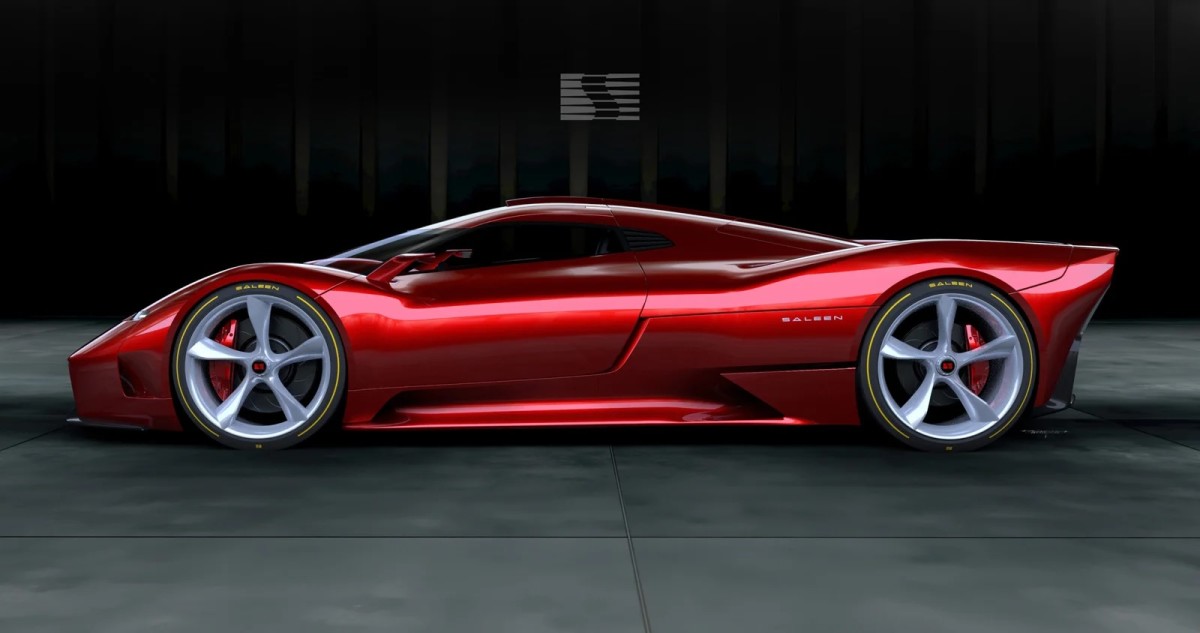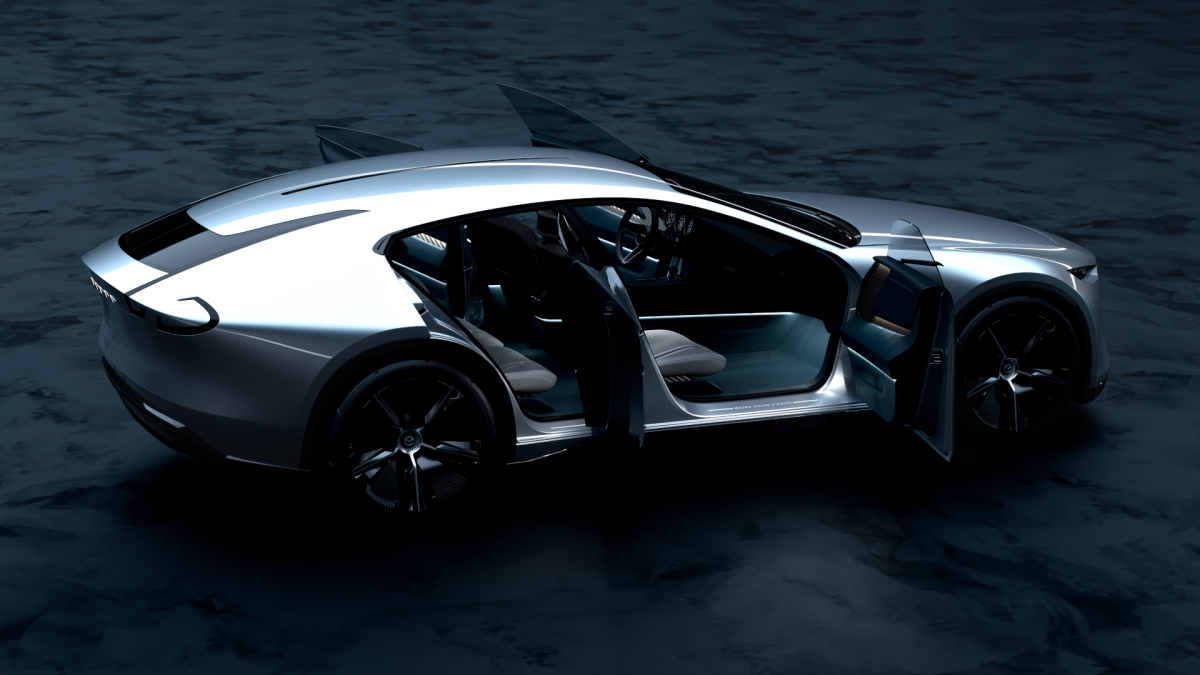Lexus’s Ambitious LS SUV Plans: A Bold Move to Challenge Luxury Giants in a Market Shift Towards Electric Dominance and Performance Rivalry
The automotive landscape is undergoing a seismic shift, with traditional luxury sedans losing their allure as consumers increasingly gravitate toward SUVs and electric vehicles. In this context, Lexus, the luxury division of Toyota, is making headlines with its exploration of a new LS SUV, a bold move aimed at rivaling established players like Porsche and BMW. This initiative reflects not only a response to changing consumer preferences but also a strategic pivot for Lexus as it seeks to redefine its identity in an evolving market.
The LS nameplate has long been synonymous with luxury and innovation. Since its inception in 1989, the Lexus LS has represented the brand’s commitment to quality and performance. However, as global demand for large sedans has waned, Lexus has recognized the need to adapt. The recent retirement of the LS sedan underscores this reality, prompting the brand to explore new avenues for growth and relevance.
At the Tokyo Motor Show, Lexus unveiled the LS Coupé concept, a striking vehicle that embodies the brand’s vision for the future. This concept is part of a broader strategy that includes a range of models, such as the Micro LS and a six-wheeled LS MPV. The LS Coupé stands out as the most production-ready of these concepts, showcasing a design that is both sleek and practical. With its high-riding stance and premium features, the LS Coupé is positioned to compete directly with luxury SUVs from rivals like Mercedes-Benz, BMW, and Porsche.
Ian Cartabiano, head of Toyota’s Californian design studio, emphasized the LS Coupé’s dual focus on luxury and performance. He stated that the vehicle is designed to provide “the interior space of a luxury sedan” while delivering “the engaging experience of a true driver’s car.” This duality is crucial as Lexus aims to attract a new generation of buyers who prioritize both comfort and driving dynamics.
Inside the LS Coupé, the emphasis on technology and user experience is evident. The vehicle features a trio of widescreen digital displays, integrating the next generation of Lexus’s infotainment system. This focus on digital innovation aligns with broader trends in the automotive industry, where connectivity and user interface design are becoming increasingly important. The yoke-style steering wheel hints at ongoing developments in steer-by-wire technology, which could enhance the driving experience and provide a glimpse into the future of automotive control systems.
Passenger comfort is also a priority in the LS Coupé, with features designed to elevate the in-car experience. Automatically deploying armrests and large portrait-format screens integrated into the front seatbacks enhance the luxury feel, ensuring that rear-seat passengers enjoy a level of comfort comparable to that of traditional luxury sedans. This attention to detail reflects Lexus’s commitment to providing a holistic luxury experience, catering to both drivers and passengers.
One of the more unconventional features of the LS Coupé concept is the inclusion of a high-speed drone that can deploy from the rear deck. This whimsical addition is intended to document journeys, adding an element of fun and modernity to the driving experience. Such innovations are indicative of Lexus’s willingness to push boundaries and explore new ways to engage with consumers.
While the LS Coupé concept is generating excitement, the path to production remains uncertain. However, Lexus has the advantage of leveraging Toyota’s E-TNGA modular architecture, which could facilitate the development of a production model. This architecture would allow the LS SUV to share components with the smaller RZ, potentially streamlining production and reducing costs.
The potential for a production version of the LS SUV to serve as an electric counterpart to the RX SUV is particularly noteworthy. The RX has been one of Lexus’s most successful models, and an electric variant could tap into the growing demand for eco-friendly vehicles. As consumers become more environmentally conscious, automakers are under increasing pressure to offer electric options that do not compromise on luxury or performance.
Lexus’s exploration of the LS SUV comes at a time when the luxury automotive market is experiencing significant transformations. The rise of electric vehicles is reshaping consumer expectations, with many buyers seeking sustainable options that align with their values. In this context, Lexus’s commitment to developing electric models is not just a response to market trends but a necessary evolution for the brand.
As Lexus navigates this complex landscape, it faces challenges from established luxury brands that have already made significant strides in the electric vehicle segment. Companies like Tesla have set high standards for performance and technology, forcing traditional automakers to rethink their strategies. Lexus’s ability to compete will depend on its capacity to innovate while staying true to its core values of luxury and reliability.
The LS Coupé concept serves as a harbinger of what could be a new era for Lexus. By venturing into the SUV market, the brand is not only acknowledging the changing preferences of consumers but also positioning itself to reclaim its status as a leader in luxury automotive design. The success of this endeavor will hinge on Lexus’s ability to deliver a product that resonates with buyers while maintaining the brand’s reputation for quality and performance.
In conclusion, the exploration of the LS SUV represents a pivotal moment for Lexus as it seeks to redefine itself in a rapidly changing automotive landscape. The brand’s commitment to innovation, luxury, and performance will be crucial as it navigates the challenges and opportunities presented by the evolving market. As Lexus prepares to unveil its next chapter, the automotive world watches closely, eager to see how this iconic brand will adapt and thrive in the face of change.
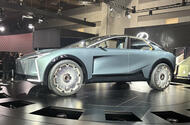
Japanese car maker is exploring viability of new LS SUV to rival Porsche and BMW
Lexus has revealed the new LS Coupé concept, one of a number of models – including the single-seat Micro LS and huge, six-wheeled LS MPV – that could form part of an expanded family of LS vehicles inspired by the seminal luxury saloon of the same name.
The Japanese brand is responding to a global drop in demand for large saloons that once formed the bedrock of the luxury car market – including its own LS, which retired earlier this year having launched as Lexus’s first model in 1989.
While the Micro LS and MPV concept show some of the ways that spirit could be channeled, the LS Coupé concept – unveiled at the Tokyo motor show – looks to be the most production ready.
A rakish, high-riding premium SUV, it would be a natural rival to similarly conceived models from Mercedes, BMW and Porsche, though the firm has given no indication of its performance potential or dimensions.
Ian Cartabiano, who runs Toyota’s Californian design studio, said the LS Coupe will “let you do it all, and do it all in style”.
“It offers a future luxury experience with the interior space of a luxury sedan, and the engaging experience of a true driver’s car.”
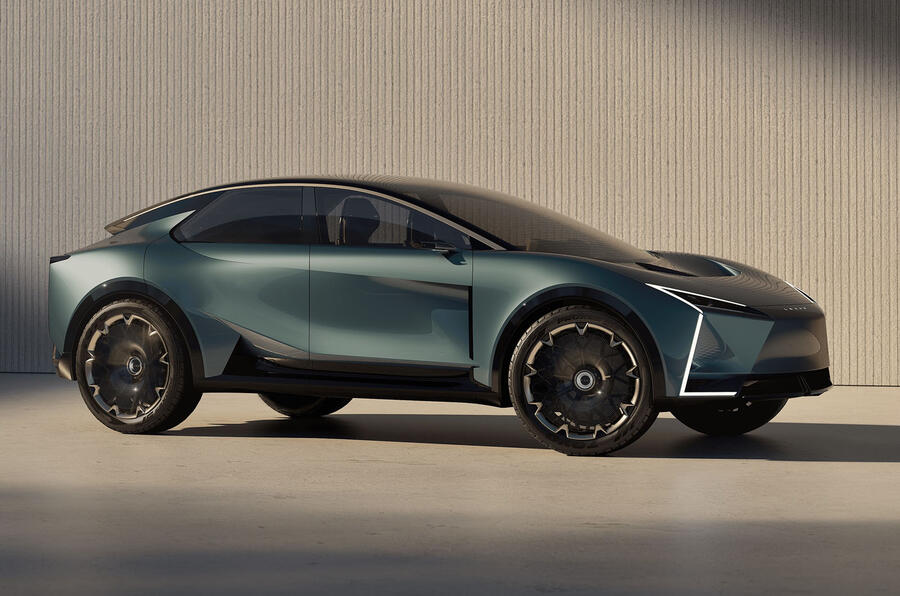
Irrespective of its likelihood to make production, though, the concept is important for what it shows about the future of Lexus products.
Inside, for example, the Coupé features a trio of widescreen digital displays – two for the driver and another (which folds away) for the passenger – running the next generation of Lexus’s infotainment system, while the yoke-style steering wheel hints at plans to keep developing the RZ’s steer-by-wire system, and the sports-style driver’s seat emphasises the ongoing importance of performance.
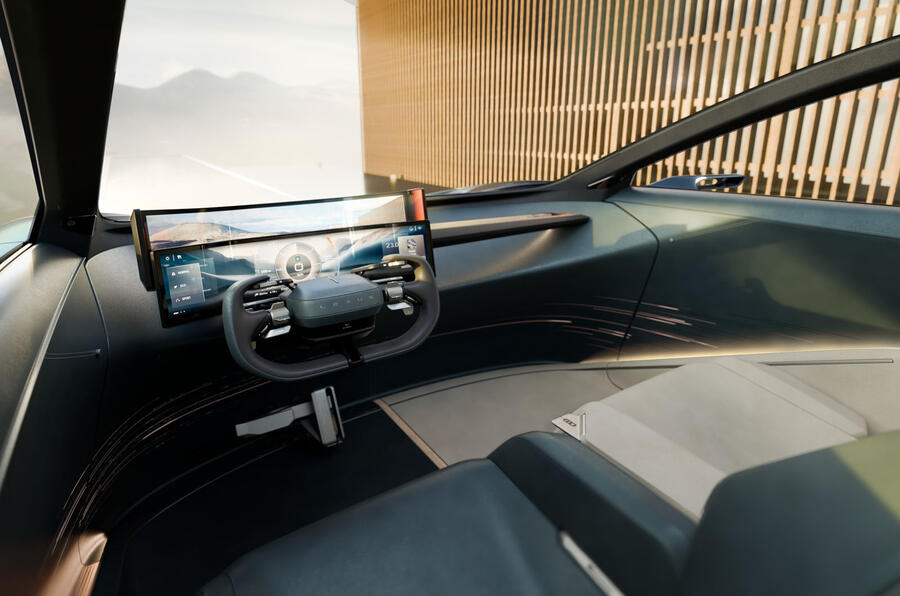
In the back, passengers can use automatically deploying armrests and large, portrait-format screens integrated into the front seatbacks -– and are said to get the same level of space they would have in a traditional luxury saloon.
There is also a high-speed drone that can deploy from the rear deck to follow the car around and document a journey “just to make it more fun”, said Cartabiano, and rather than a conventional bootlid the concept features a pull-out drawer “for ease and elegant storage”. “Why not?” he added.
Plans for a production version remain under wraps, but no doubt Lexus could relatively easily use Toyota’s E-TNGA modular architecture for such a model – and thereby make it a close relation to the smaller RZ.
It is possible that a production version would serve as an electric equivalent to the RX SUV, Lexus’s second-longest-running product line and one of its most popular global models today.

